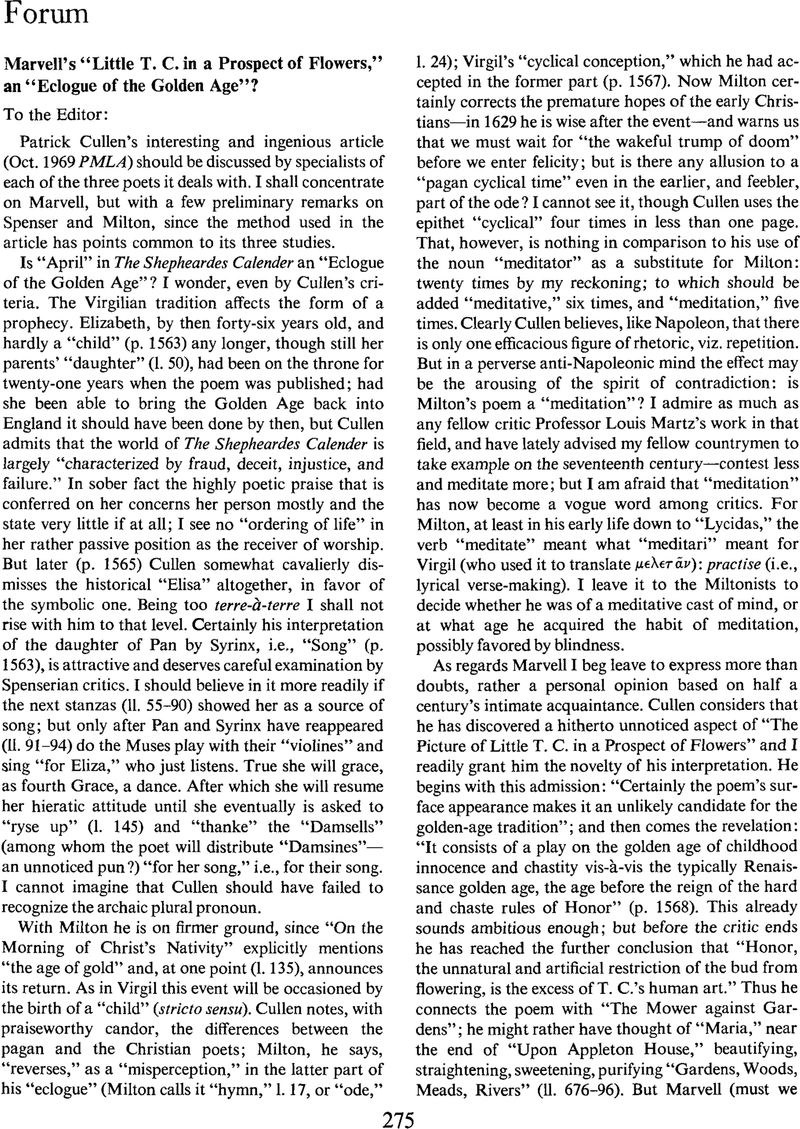No CrossRef data available.
Article contents
Marvell's “Little T. C. in a Prospect of Flowers,” an “Eclogue of the Golden Age”?
Published online by Cambridge University Press: 01 December 2020
Abstract

- Type
- Forum
- Information
- Copyright
- Copyright © Modern Language Association of America, 1971
References
Note 1 in page 277 Cullen might have found some comfort, if not exactly support, in Mr. Kermode's note on 1. 5: “Gives them names: a task traditionally attributed to Eve in Eden.” If not the pagan blissful state we should have its Christian equivalent.
Note 2 in page 277 Marvell does not name Tasso, nor does he apparently quote from his works; but very near the beginning of The Rehearsal Transpos'd, he (without naming Guarini) mentions “Amaryllis's dilemma” (Grosart, hi, 8; see also p. 85), showing sufficiently his scorn for that sort of protest against “troppo dura legge” that forbids “il peccar … si dolce.” On that theme see Nicholas J. Perella, “Amarilli's Dilemma: The Pastor Fido and Some English Authors,” CL, 12 (1960), 348-59.
Note 3 in page 277 See, e.g., “The Dampe,” 11. 11-12. On this topic it suffices to refer to Louis Bredvold's article, “The Naturalism of Donne in Relation to Some Renaissance Traditions,” JEGP, 22 (Oct. 1923), 471-502. Louis Lecocq, La Satire en Angleterre de 1588 à 1603 (Paris: Didier, Perversion 1969), pp. 57-58, after quoting S. K. Heninger, “The Renaissance Version of Pastoral,” JHI, 22 (1961), adds: “11 faut préciser que certains regrets de Page d'or ne sont que des jeux poétiques . . . Donne suit cette mode dans son ‘Elegie xvii,‘ vers 38 sqq., oũ Ton ne trouve rien de sérieux ni d'amer.”


